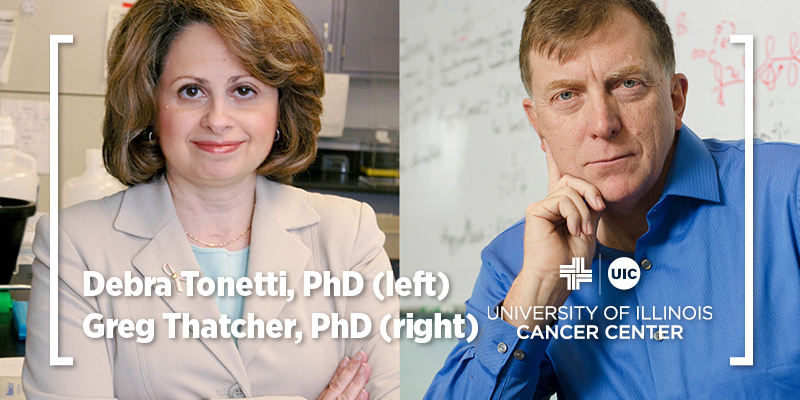
A new type of breast cancer drug developed by University of Illinois Cancer Center members Debra Tonetti and Gregory Thatcher can help halt progression of disease and is not toxic, according to phase 1 clinical trials. The drug is specifically designed for women whose cancer has stopped responding to hormone therapy.
The results are published in the journal Breast Cancer Research and Treatment.
Breast cancer affects one in eight women in the United States, and while there are many types of breast cancer, around 80% are categorized as estrogen receptor-positive, or ER-positive. This means the cancer cells have receptors — molecules that can receive signals from chemicals in the body — that are sensitive to and react to the hormone estrogen.
In the case of ER-positive breast cancer, this means that estrogen fuels cancer growth. To treat this type of breast cancer, doctors prescribe medication to block hormone production in the body or interfere with the effect hormones have on cancer cells. This type of treatment is called hormone therapy. However, nearly half of women treated with hormone therapy become resistant, leaving traditional chemotherapy and its side effects as the only option for treatment.
Tonetti, PhD, is professor of pharmacology, while Thatcher, PhD, is the UIC Hans W. Vahlteich Chair of medicinal chemistry and co-leader of the UI Cancer Center’s Translational Oncology program.
